
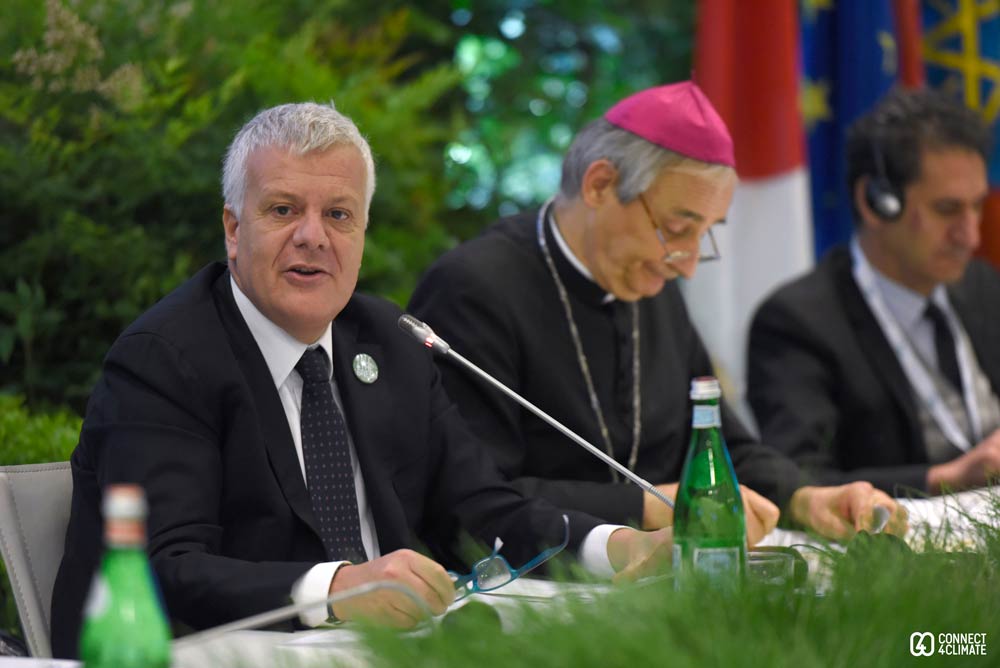
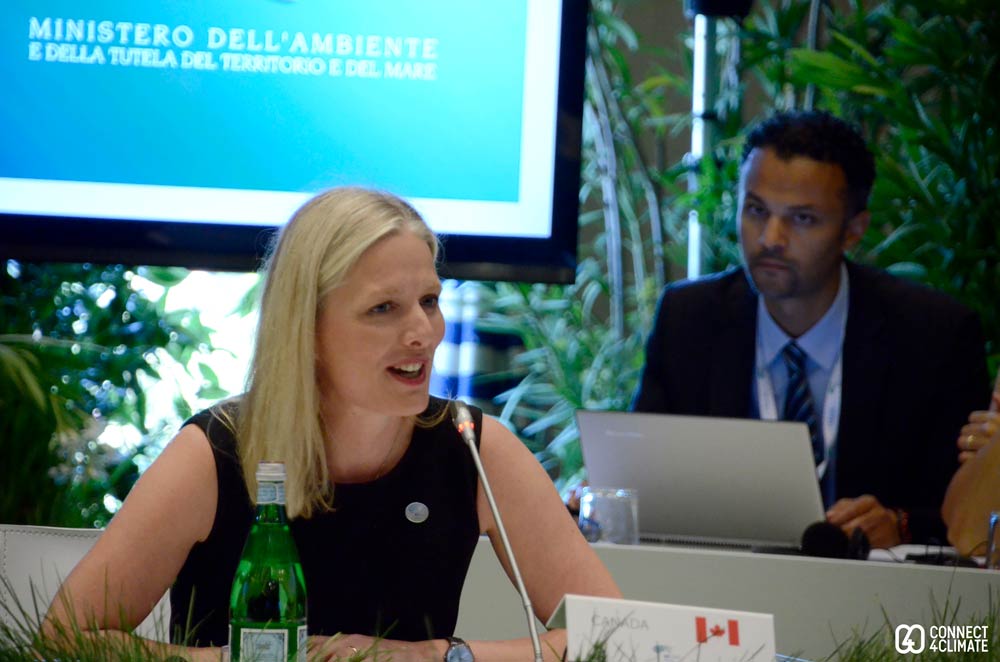
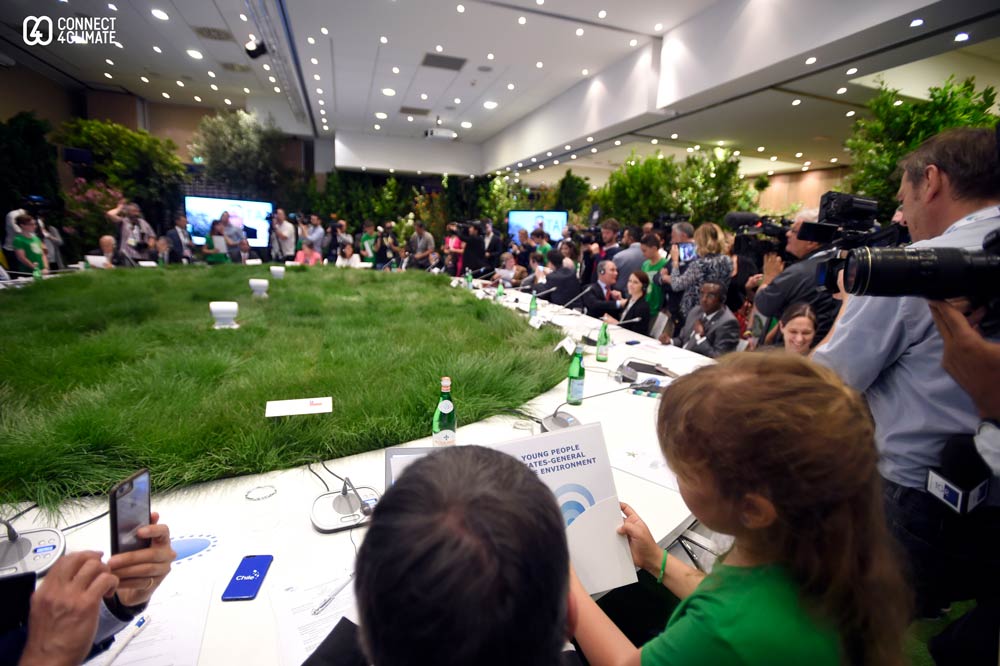
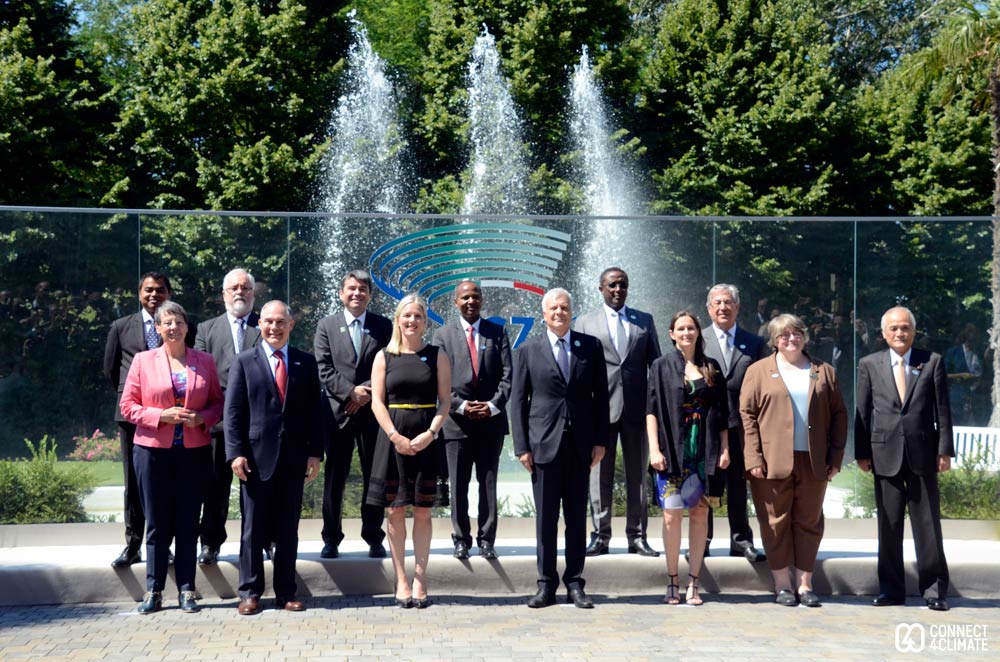
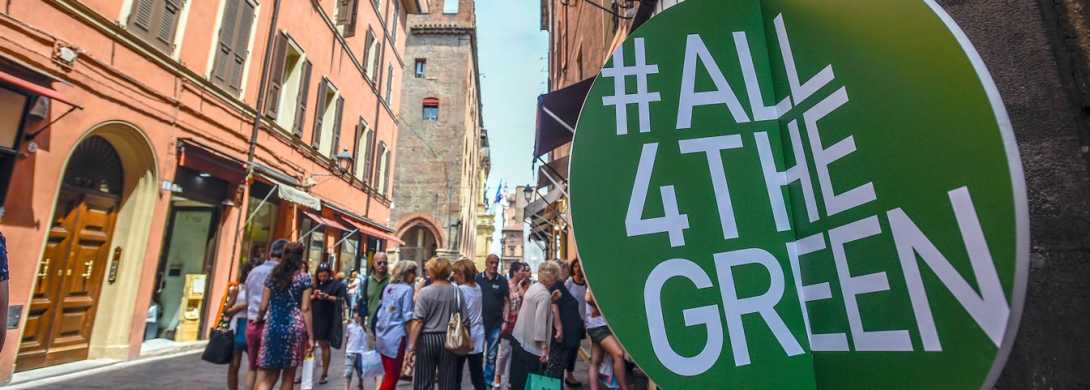
Nadelini, Righi and Rebeschini: three photojournalists from Bologna portray the climate change consequences through photos taken in every single part of the planet. The book was presented during the All4TheGreen week held in Bologna.
The book “Il Mondo Trasformato [The Transformed World]” compiles 33 images of the world and, specifically, the Emilia Romagna region in Italy, describing climate change. It is the result of an emotional journey that started on the Hurricane Mitch that affected the center of America in 1998, and it continued with the 2005 tsunami in Sri Lanka. The book also describes the environmental catastrophes that happened in Emilia Romagna.
Looking at these images, you can understand the absolute power that humankind has protecting or destroying the environment. In fact, the future of our planet depends on our actions.
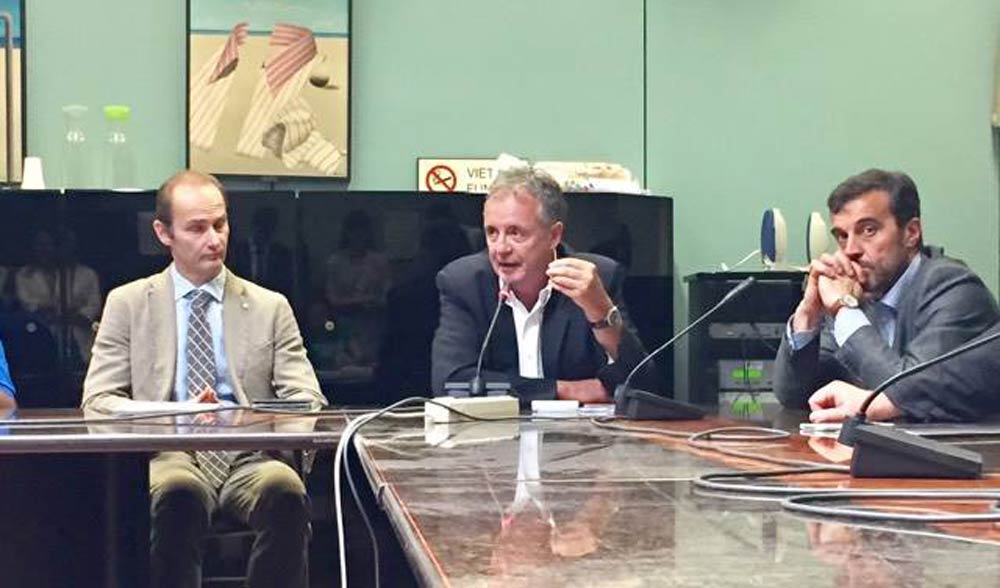
The book “Il Mondo Trasformato [The Transformed World]” presentation in Bologna included in the "All4TheGreen' week of activities.
The photographers intend to make people aware of the consequences of climate change, to reflect on the subject and ask questions. Informed people are more capable of taking the right decisions. Also, the professionals have also produced a documentary called “Buonasera Clima [Good Morning Climate]," featuring Franz Campi and Federico Taddia, renowned experts on climate change. As said during the book presentation, there were so many external contributions that it allowed them to create a five episodes series available to the public.
The TV show “Buonasera Clima” finished with a Skype call live from the Artic where Simonetta Saliera, President of the Italian Legislative Assembly, was able to connect with CNR (Consiglio Nazionale delle Ricerche) researchers located in the South Pole.
This book presentation happened during the Green Social Festival and created the opportunity to the Legislative Assembly of Emilia Romagna to be part of the #All4TheGreen program presented by the Italian Minister Gian Luca Galletti, regarding the G7 Environment meeting which will take place during this weekend, June 10 and 11.
As said during the event by Franz Campi, “there is a lack of Italian materials that talk about climate change and its consequences." There are also many people who disagree with this topic, as so the video connection with the South Pole aimed to inform people on this issue.
Unfortunately, climate change does exist, and time only worsens this global problem. We have to do more to leave a better future for generations to come. On our point of view, it is necessary to make people aware of the climate change consequences, and to stimulate them to act.
Banner Photo Credits to Leigh Vogel/Connect4Climate

Dear friends, brothers and sisters,
Distinguished organizers and participants of this important Interfaith Forum on Environmental Protection,
We are delighted to convey this message in order to assure you that we join you in prayer as you recognize the support of the world's religions in addressing climate change and affirming the protection of God's creation.
As religious leaders, all of us share an immense - and indeed a sacred vocation - responsibility to hold nations and corporations, but also communities and individuals accountable for the way we are treating our planet.
There can be no reason or excuse for indifference or inaction. Today, all of us are well aware of the intimate and inseparable connections of the ecological crisis to the global problems of poverty, migration and unrest.
How, then, can any nation decline the welfare of its citizens? Or how can any industry defend the exploitation of its consumers? And how can any person-of-good-will doubt the ethical implications of his or her lifestyle?
Dear friends, let us remind our leaders of the vital importance and urgency of implementing the Paris Agreement. Let us remind our nations that the earth is not a possession but a partner on our journey toward peace and prosperity.
Above all, let us remind everyone that God's creation is not a commodity but rather a gift that we are called to sustain and share with the most vulnerable and marginalized as well as to safeguard for the sake of our children.
May God bless you all in your deliberations and decisions.
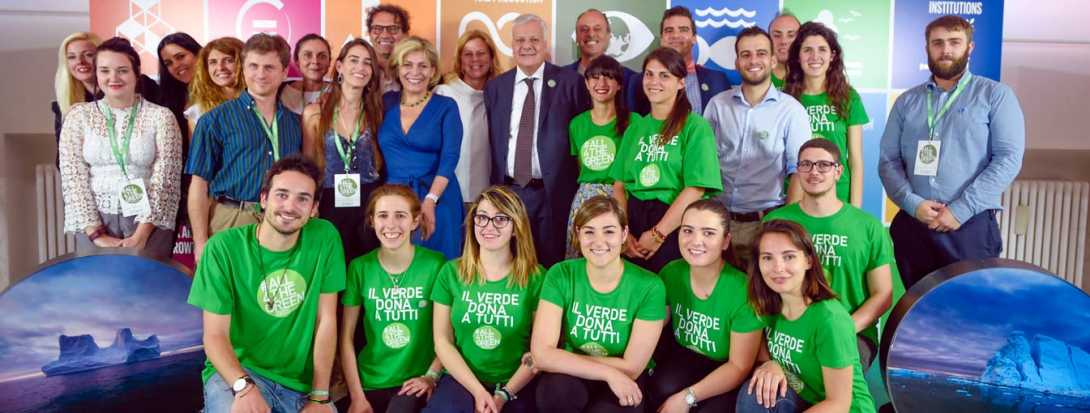
After the successful opening day of the #All4TheGreen week, which concluded with the impressive concert of Ezio Bosso in Piazza Maggiore, with a clear message asking the audience for climate action underlying the importance of the environment, day two kicked off with a discussion between a network of Italian universities and G7 delegates for sustainable development.
Lamberto Mancini explained how the theme of sustainability is at the core of Touring Club Italia. Why? Thanks to the action taken by Touring Club Italia of carefully mapping the Italian territory and putting road signs across the country, they are attributing value to the Italian countryside and delivering an enriched and sustainable environment to future generations.
The interviews were rounded up with an engaging discussion between Gian Luca Galletti, Italian Environmental Minister, and the master’s students from IULM University of Milan about the role of Italy as a leading player in the action against climate change, not only as the host country for the G7 Environment but also serving as a country model for other international players. The Minister informed that Italy invested 11 billion euros over the past three years in renewable energy. “We truly believe that in today’s economy, profits go side by side with sustainable business solutions”.
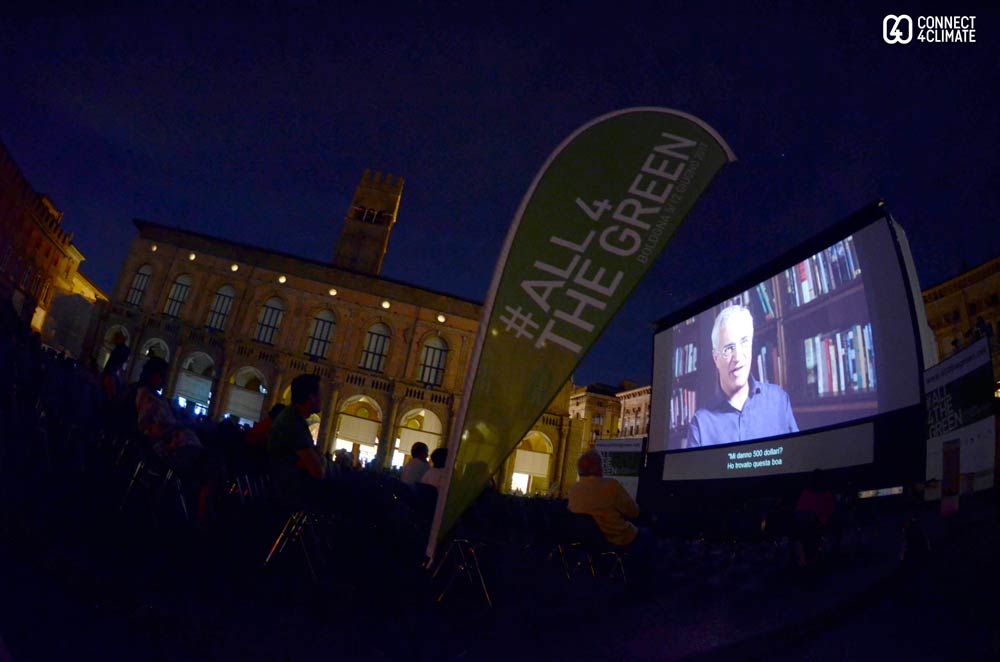
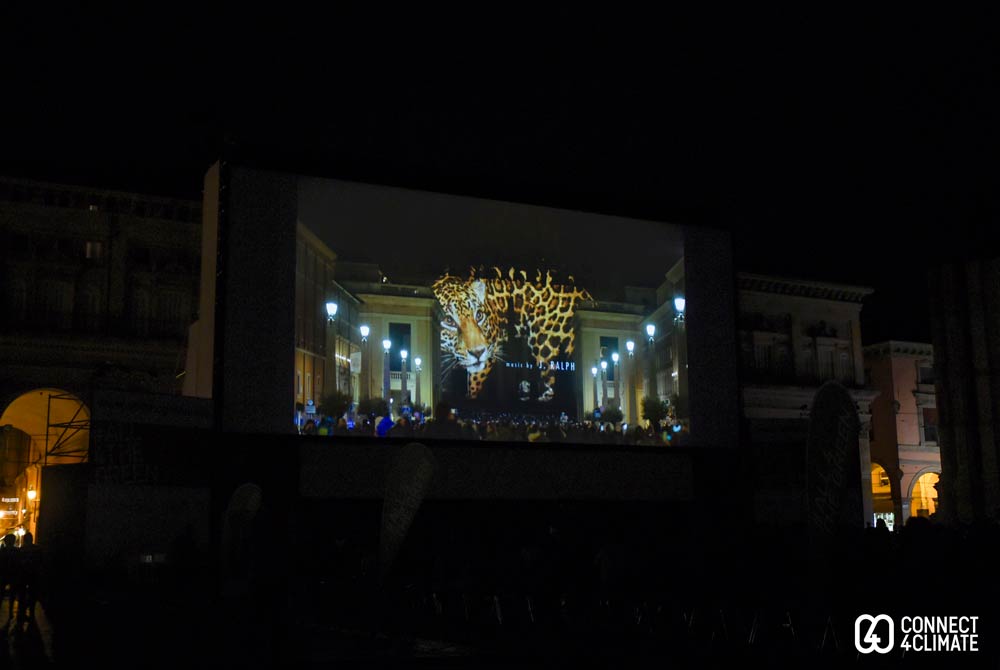
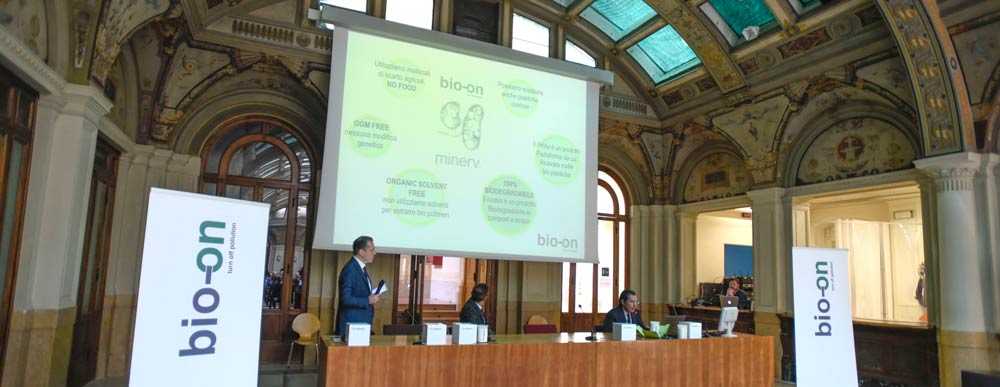
Bologna (Italy) 5 June 2017 – Some innovations bring truly revolutionary change to the planet and this is why Bio-on is proud to present its new technology, Minerv Biorecovery, which enables hydrocarbon sea pollution to be eliminated within approximately three weeks. "From today we offer the world and the market the technology to take effective, natural and ecological action in the event of environmental disasters such as oil spills into the sea," explains Marco Astorri, Chairman and CEO of Bio-on, which announces the success of its research conducted in collaboration with IAMC-CNR in Messina. "We have discovered," explains Astorri, "that the particles forming our PHAs bioplastic are the ideal environment for hosting and feeding the special microorganisms that eliminate oil from the sea." The World Bank Group will support Bio-on in raising awareness of the benefits of this technology for safeguarding the oceans as part of the Connect4Climate programme.
Marco Astorri, Chairman and CEO of Bio-on, shares more about the new technology Minerv Biorecovery in a Facebook Live session with Max Thabiso Edkins, Connect4Climate, at the SDG Media Zone in Bologna, Italy, as part of #AllTheGreen week of activities in the lead up to the G7 Environment.
Minerv Biorecovery: How it works
Minerv Biorecovery is a technological solution made of micro powders, measuring just a few microns and of a particular shape, created out of Bio-on's revolutionary PHAs bioplastic that is natural and 100% biodegradable. The particles of these micro powders are thrown into polluted sea waters and form a porous structure housing a series of bacteria, naturally present in the marine environment, which feeds on the bioplastic, multiply and grow stronger until they attack the oil. The biodegradation processes activate within approximately 5 days and the degradable fraction of the hydrocarbons (e.g. oil) is eliminated in approximately 20 days.
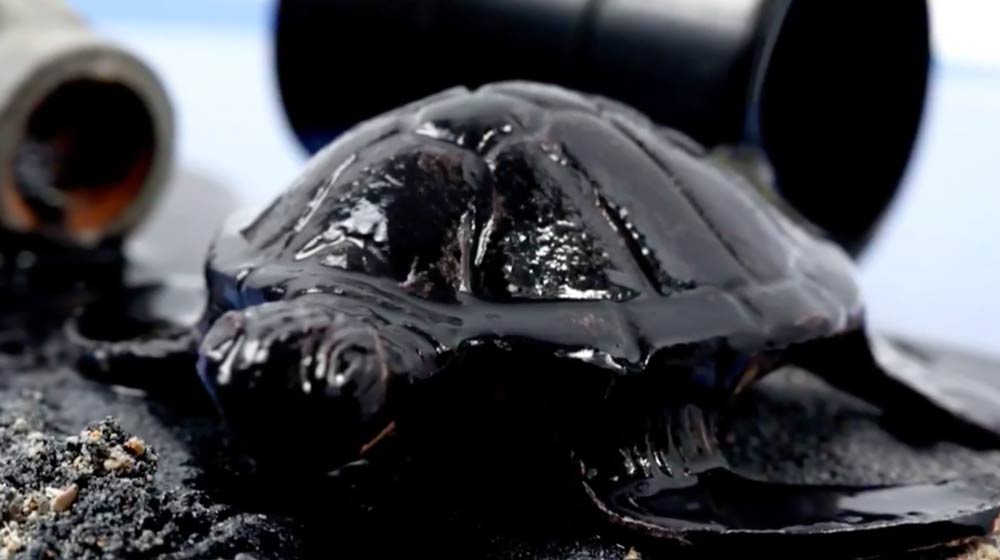
"It is nature looking after itself," explains Astorri, "because of our bioplastic, which is biobased, helps protect and feed these bacteria, thus accelerating their natural action." The micro powders in Minerv Biorecovery are 100% biodegradable and therefore do not release any residue into the sea unlike many solutions used to date in these cases. The biodegradation process for PHAs powder is sufficiently slow (1-2 months depending on conditions) to allow the bioremediating action of the microorganisms which, after having eliminated the pollutants, return to normal levels in the marine environment.
Tests on Minerv Biorecovery have been ongoing for several months at IAMC-CNR in Messina, which has tested, measured and validated the technology. Thanks to these studies, Bio-on is able to define an entirely new application in the oil-bioremediation field - a targeted activity that aims to “remediate” the negative impact on the environment of polluting molecules and products such as hydrocarbons, thanks to the metabolic degradation, and biodegradation, of microorganisms.
This activity is carried out by companies specializing in environmental remediation, Harbour Master's Offices, Navy, sea traders, etc.
"The principle of oil-bioremediation," explains Dr Simone Cappello, leading the Bioremediation project at IAMC in Messina, "is based on the existence of microorganisms, bacteria mainly, which are capable of attacking the molecular structure of many of the components in the naturally complex formulation of hydrocarbons. These microorganisms," explains Cappello, "are present in the marine environment but in metabolic, physiological conditions and not in sufficient quantities to enable a substantial reduction of the hydrocarbon spills. It is thanks to PHAs bioplastic that it is now possible to encourage and accelerate the otherwise prolonged transformation to CO2, the end product of biodegradation. Using PHAs bioplastic is also safe for the environment and marine life because it leaves no trace."
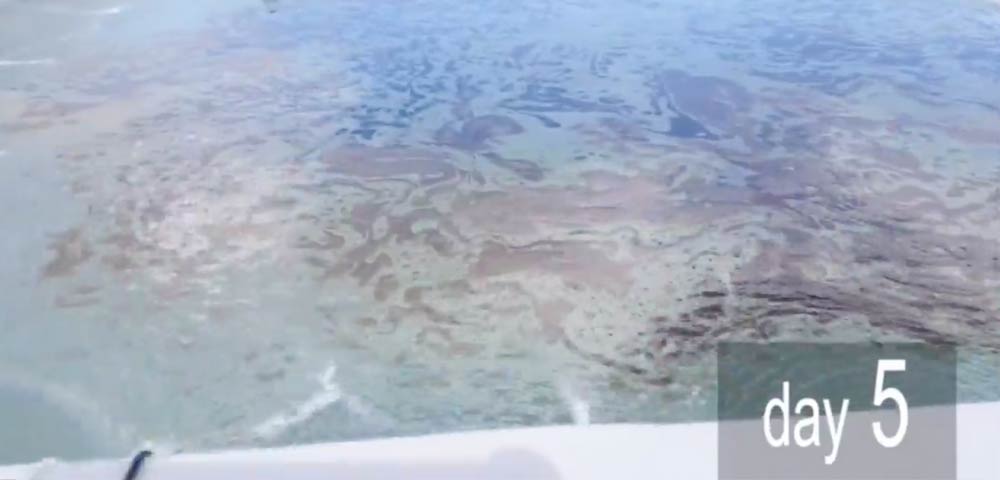
In the coming weeks, further tests will be conducted in the seas around the world: at ports and at industrial sites such as the refineries and cisterns at major oil companies. The application of this new technology will allow cleaning not only in the event of disasters but also in the everyday maintenance of ports or industrial sites.
"We are proud to announce this extraordinary discovery and contribute to protecting the marine environment," says Marco Astorri, Chairman and CEO of Bio-on, "We will license this technology, which is a further example of the many applications made possible by the PHAs bioplastic micro powders we will produce at the plant in Castel San Pietro Terme (Bologna) from 2018. We will continue to extend our direct presence even more in the bioremediation, cosmetics, biomedical and nanomedical sectors. Working with IAMC, a point of global excellence in marine research fills us with pride."
Minerv Biorecovery, like all the PHAs bioplastics (polyhydroxyalkanoates) developed by Bio-on is made from renewable plant sources with no competition with food supply chains. It is 100% eco-sustainable and naturally biodegradable at ambient temperature.

Bio-on will license the Minerv Biorecovery technology in the course of 2017. Marine pollution remediation products will be available from 2018
Press information: Angèlia S.r.l. Simona Vecchies; +393351245190; press@bio-on.it
Twitter: @BioOnBioplastic
Banner Photo Credits to Riccardo Savi/Connect4Climate





